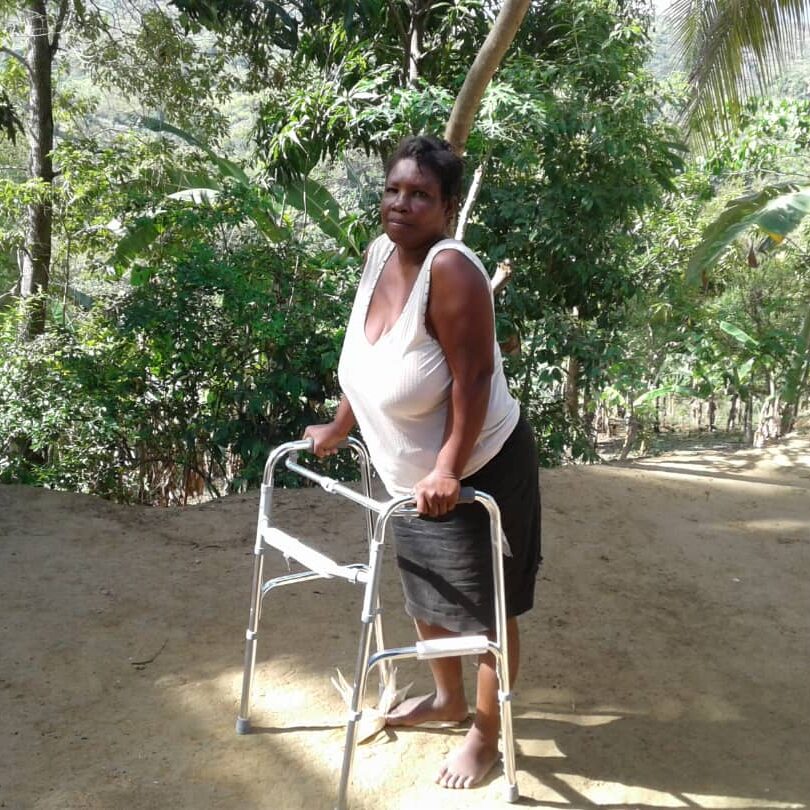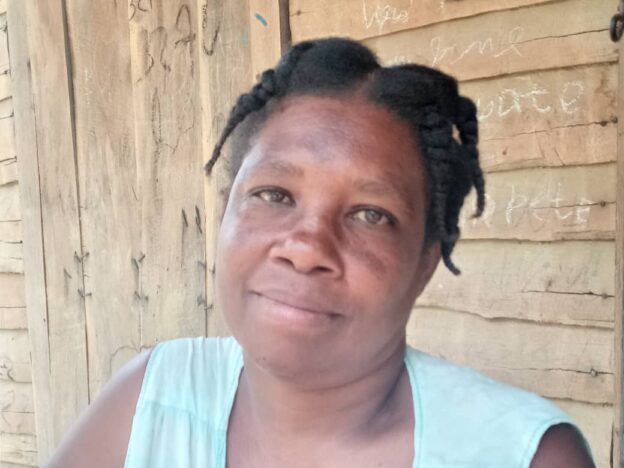Rosimène lives in Bagas, a neighborhood of Wòch Milat, in the valley enclosed by the Artibonit River and the ridge that runs to its south through much of Laskawobas. During the rainy season, the neighborhood is relatively accessible. Residents can take canoe taxis from various spots. But during the dry season, the principal route out is a long hike up and back down the ridge and then along the road to the downtown area.
Getting in and out of Bagas is especially hard for Rosimène. For over two years, she’s been unable to walk. She lost the use of her legs to some sort of sickness. When it first took her, she spent a month at the Partners in Health hospital in Kanj, and then another at the larger one in Mibalè. But nothing doctors could do for her helped. She lived for a while with a sister, in a more accessible area along the main highway that runs between Mibalè and Ench. But she began to feel like an unwelcome guest, so she decided to look for someplace else. An aunt offered her unlimited use of the house in Bagas where she lives now with two of her six children.
They cannot live in her own house, because she had to sell it to pay for the funeral when her husband passed away in 2009. The couple had always struggled, but he was a hard-working farmer and she managed a small grocery business, and they got by. His death and the consequent expenses left her unable to manage.
Eventually, one of her children went off on her own. She now has her own household, but she and her mother remain close. Two others were taken in by a family in Kanj, who sends them to school there. The youngest was taken in by his uncle. That leaves Rosimène directly responsible for the fourth and the fifth, who are 15 and 12, though the 15-year-old spends the week during the school year with his siblings in Kanj, where he attends school as well. The family gets by mainly through support from Rosimène’s neighbors and her daughter and the little they can earn from the 15-year-old’s farming of their last piece of farmland.
About five months ago, Rosimène joined the CLM program. She chose goats and a boar as her two enterprises, and she’s able to take care of them with her 12-year-old’s help. She provides the direction, and he does the work. She would like to raise the animals until she can sell them off to buy a cow, but she doesn’t yet have a clear sense of what she’d do with the cow, other than that it would be there in case she ran into a problem. She may be thinking about the devastation her husband’s funeral expenses once caused her. She would like to start a small grocery business again, but will have a lot to figure out, like how she will arrange her purchasing.
For now, lack of mobility is a major impediment for Rosimène. The CLM team is working to get her a walker from the Haitian government, and it could try to get her a wheelchair as well, if that is what it turns out that she needs, but neither will do much more than help her get around her own yard. The paths that lead through and around Bagas would be impossible for a wheelchair — they are narrow, winding, and uneven — and almost as difficult with a walker.

